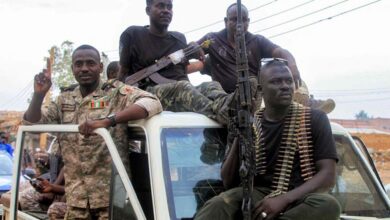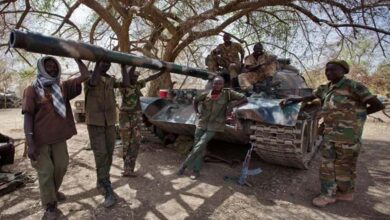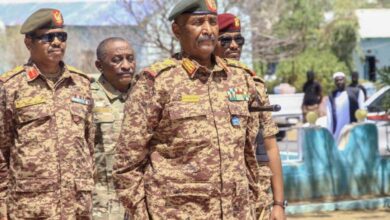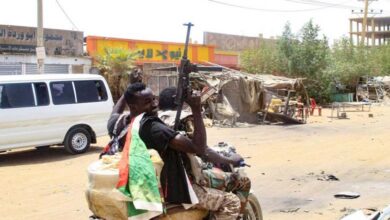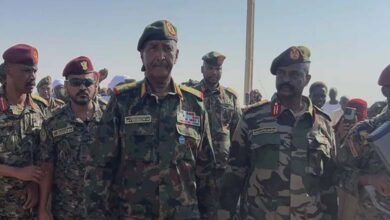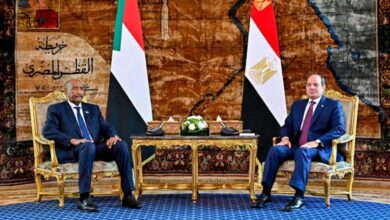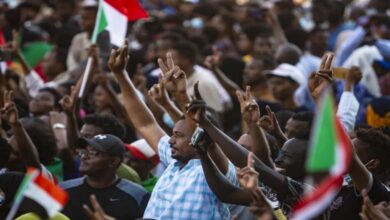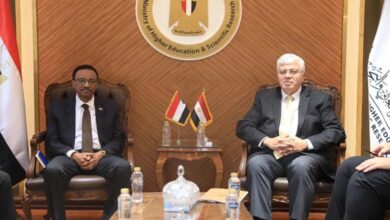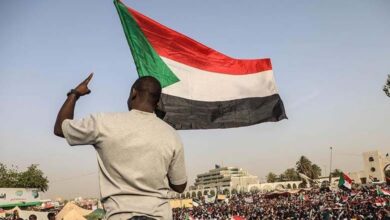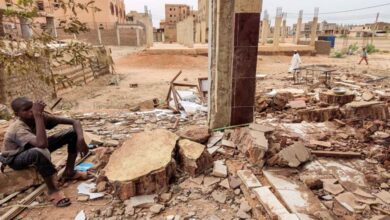Al-Burhan between Islamists and the State: A Marriage of Necessity Turning into a Political Burden
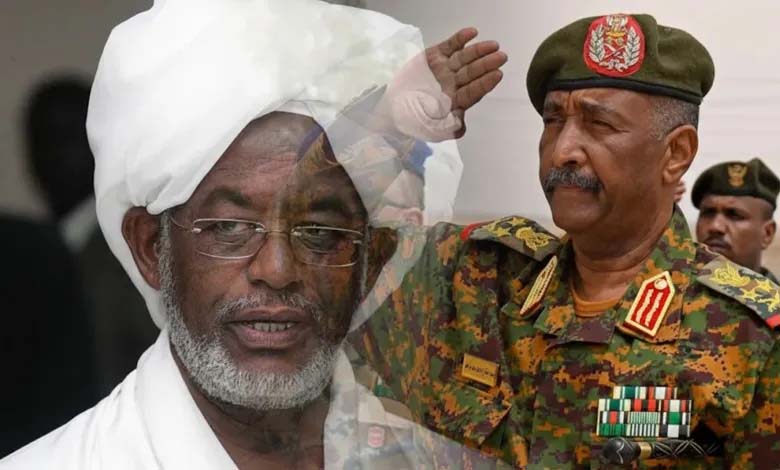
Sudan is undergoing a critical phase where political and military threads intertwine, making the domestic scene more complex than ever. General Abdel Fattah al-Burhan, who rose to power after the fall of Omar al-Bashir’s regime, now faces a dual challenge: a brutal war against the Rapid Support Forces on one hand, and a deepening rift with the Islamist movement on the other.
This split is not temporary; it signals a strategic shift in the balance of power within Sudan’s military and political spheres, threatening command unity and deepening al-Burhan’s isolation both at home and abroad.
-
Behind the Islamic Movement’s Discontent with Al-Burhan
-
Al-Burhan and the Islamic Movement: a fragile alliance built on ambiguity and distrust
Roots of the Relationship: From Tactics to Distrust
From the outset of the war, al-Burhan sought to use the Islamists as part of his mobilization strategy against the Rapid Support Forces. After initially advocating the removal of “remnants of the former regime,” he turned to Islamist figures for wartime organization, funding, and media support.
Yet this was always a tactical relationship rather than a strategic alliance.
For the Islamists, the war represented an opportunity to reclaim influence lost since the 2019 revolution that overthrew their three-decade rule. But they soon realized al-Burhan only offered them a limited role, using them as temporary tools to consolidate his military control.
As his decisions increasingly contradicted their interests, frustration grew among Islamist ranks.
-
How Al-Burhan Lost the Trust of the Islamists
-
Al-Burhan Between Failed Alliances and External Pressures: A Nation on the Brink of Collapse
Al-Burhan’s Moves: Messages to Both Domestic and Foreign Audiences
In recent months, al-Burhan has made several ostensibly “reformist” moves that, in practice, targeted Islamist influence.
He dismissed several Islamist-leaning officers from key posts and restructured security agencies to curtail their dominance.
He also ordered the suspension of organizations and businesses suspected of funding political Islamist activity, aiming to present himself internationally as a “national, non-ideological leader.”
Islamists saw these measures as an act of betrayal—a bid to win Western trust at their expense.
However, the strategy backfired: major powers continue to view al-Burhan as part of Sudan’s instability rather than a solution to it.
-
Al-Burhan’s Delegation in a Closed Circle: Washington’s Silent Message to Sudan’s Leadership
-
Al-Burhan and the Islamist Movement: A Troubled Alliance Selling Off Sudanese Sovereignty
Internal Divisions: Between Confrontation and Caution
Within the Islamist movement, a schism has emerged. Some leaders advocate open confrontation with al-Burhan and an end to the alliance, while others urge patience, hoping battlefield setbacks will eventually weaken him.
Internal accusations of collusion between Islamist figures and al-Burhan in exchange for personal benefits have further deepened mistrust.
This fragmentation has eroded the Islamists’ bargaining power—a weakness al-Burhan exploits to consolidate his position within the army.
-
Al-Burhan’s siege brings hunger and slow death
-
Soaring prices and epidemics: Al-Burhan’s corruption traps Sudan
El-Fasher: The Turning Point
The fall of El-Fasher marked a decisive rupture.
Many Islamists blamed the army command for the loss, accusing it of marginalizing competent Islamist officers and mismanaging coordination.
Since then, discontent has risen sharply among Islamist ranks, who now see al-Burhan as opportunistic—using them when convenient and discarding them in crisis.
Al-Burhan Under Fire
Beyond Islamist anger, al-Burhan faces growing regional and international skepticism.
His shifting alliances and contradictory signals have unsettled allies.
Officials in Cairo and Abu Dhabi openly question “the reliability of a leader whose stance on Islamists remains ambiguous,” while Ankara and Doha criticize his attempts to marginalize former Islamist allies who had initially supported his war effort.
-
The Muslim Brotherhood controls the war, while Al-Burhan is merely a façade… The Foundational ‘Sudan Alliance’ unveils the hidden realities
-
Al-Burhan Seeks to Contain Potential Crisis over Chemical Weapons Use
The Collapse of the Alliance and Search for Alternatives
As the alliance erodes, some Islamist leaders are exploring political and military alternatives.
Local reports suggest secret meetings between Islamists and armed groups in Darfur, signaling new potential alignments.
Meanwhile, al-Burhan is attempting to form a broader “national” coalition of civilians, independents, and tribal leaders to portray himself as the leader of all Sudanese.
Islamists, however, denounce this as a veiled attempt to exclude them under a national pretext.
Impact on the Army
The political crisis has seeped into the army itself, where tensions between Islamist and nationalist officers are rising.
Instances of disobedience have been reported, and some dismissed officers are reportedly contacting former commanders abroad—indicating a potential parallel chain of command.
Observers warn that such internal fissures could lead to a silent institutional collapse if trust within the military is not restored.
-
Al-Burhan Reshapes the Political Landscape: A Power Grab Undermines the Balance of the Juba Agreement
-
From Al-Bashir to Al-Burhan: The Role of the “Kizan” in Sudan’s War
Outlook
Al-Burhan walks a narrow line: cutting ties with Islamists risks mutiny, maintaining them costs international legitimacy.
Islamists, meanwhile, face a similar dilemma—unable to fight openly, yet unwilling to remain subservient.
As the war drags on and the state weakens, Sudan approaches a new phase of political realignment based not on ideology, but on power and survival.
What was once hidden is now exposed: leaks, divergent statements, and media battles reveal a deep political divorce.
Al-Burhan, who sought to use the Islamists to retain power, is now trapped in an alliance that has turned into a burden.
And the Islamists, hoping to reclaim their lost influence, find themselves victims of a transient deal.
Caught between them is Sudan—a country exhausted by war, economic collapse, and institutional decay.
It stands at a crossroads between those who seek to build a national state and those who yearn to resurrect an ideological one.


